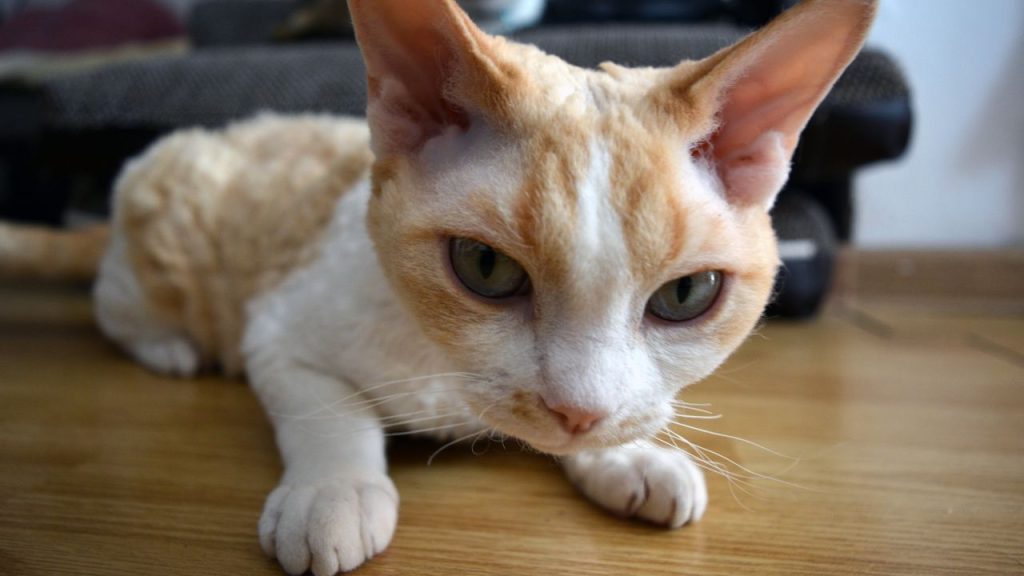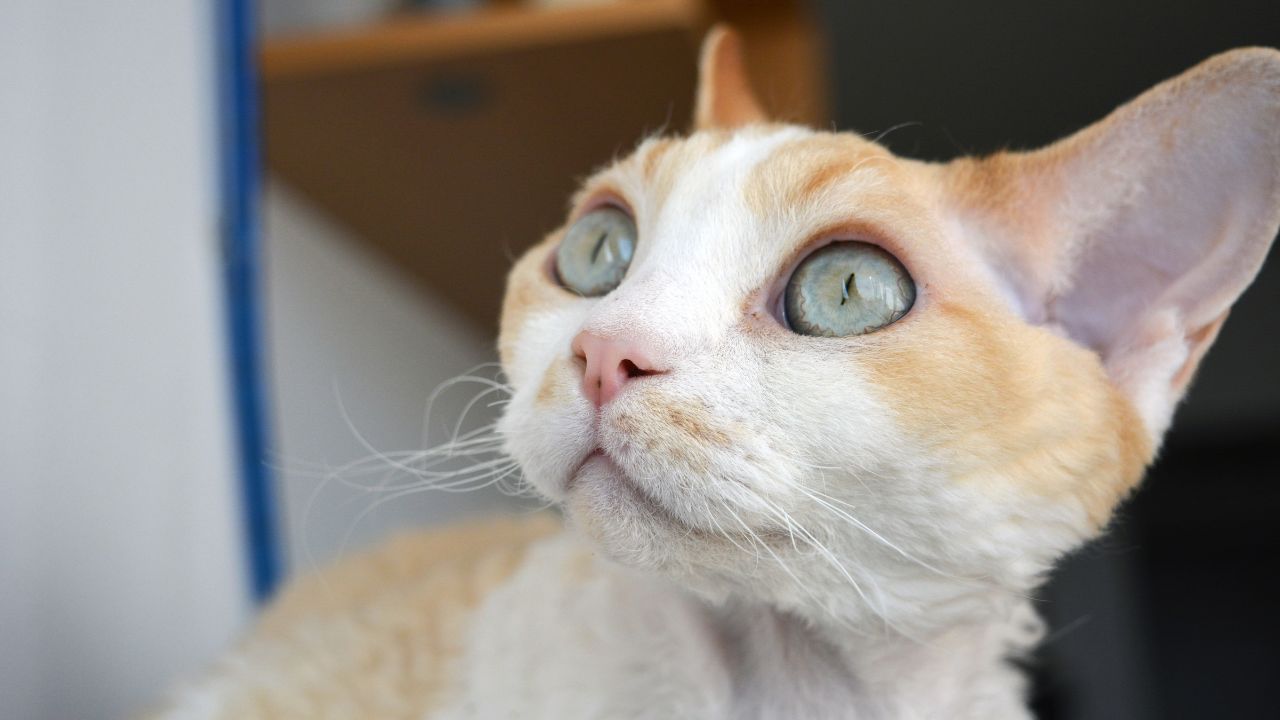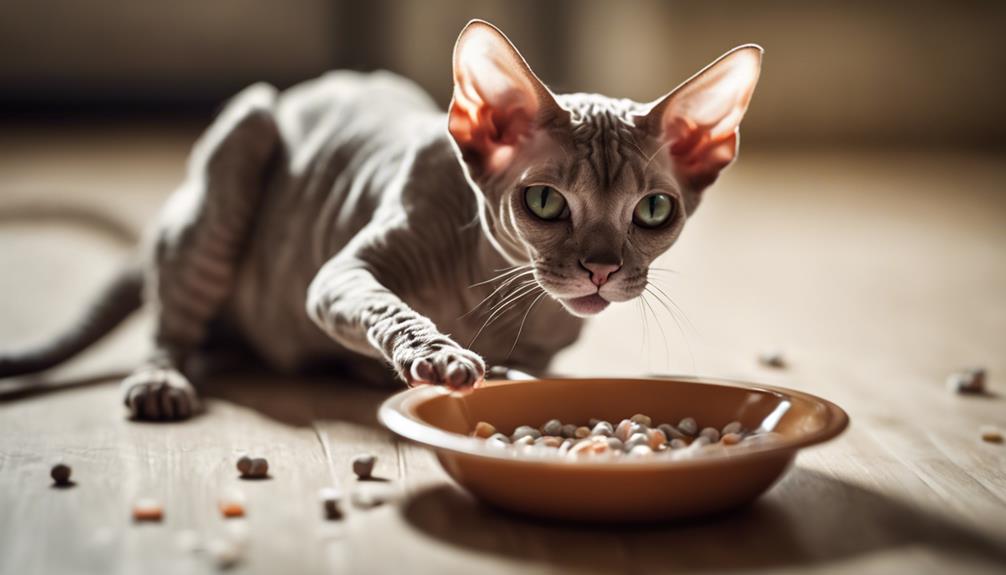Have you ever found yourself dreaming of a big-eyed, fluffy companion to cuddle up with? If so, the adorable Devon Rex breed might just be the perfect fit!
With their unique coats and features that resemble cute extraterrestrials, they’re one of the most attention-grabbing — and alluring — cats around.
But is a Devon Rex truly hypoallergenic? In this blog post, we’re diving right into what makes this incredible kitten special and why some people may suffer fewer allergy symptoms when owning one.
So keep reading if curious about whether you should get your own velvet-inspired feline!
Are Devon Rexes good for allergies?
Devon Rexes are an ideal breed of cat for those who suffer from allergies. Though all cats produce certain allergens such as Fel d1 protein and saliva, these cats have a tendency to produce less than most breeds, meaning they may be better tolerated by allergy sufferers.
In addition, they possess unique fur which is softer and curlier than typical cat coatings. This particular fur tends to trap less environmental allergens such as dust or dander, making it easier for everyone in the home to breathe more comfortably.
Devon Rexes may also be good for some allergy sufferers due to their typically low antibody counts, suggesting that their saliva does not cause strong allergic reactions.
The Devon Rex’s coat is unique in that it is short, curly or wavy, and soft to the touch. It can come in a variety of colors and patterns.
Can you be allergic to Devon Rex cat?
While many people think of cats as hypoallergenic pets, some people may have an allergic reaction when coming into contact with this particular breed – the Devon Rex.
Given the unique texture and wavy coat of these cats, it is possible for some individuals to experience sneezing, coughing, or watery eyes due to proteins in the cat’s saliva.
Some people may even experience more serious symptoms such as hives or trouble breathing after exposure.
When considering getting a Devon Rex cat, it is important to consider that while many people do not have a problem with them, they can still cause allergies in some cases.
It is important to speak with your doctor if you are concerned about allergen exposure when owning one of these cats.
Is there a 100% hypoallergenic cat?
Although many cat breeds claim to be hypoallergenic, pet owners with allergies should keep in mind that no cat is truly 100% allergen-free.
Contrary to popular belief, the dander and saliva from cats is what usually triggers an allergic reaction from owners. While certain cat breeds are said to produce less of this substance than other cats, there’s no guarantee that every single one will be completely free of allergens.
While it may be possible for allergy-suffering owners to find a hypoallergenic cat with enough research and vetting, care must still be taken when introducing such a pet into the home in order to minimize any discomfort they may experience due to their allergies.

What is the best cat for someone with allergies?
If you are looking for a feline companion but suffer from allergies, then consider a hypoallergenic cat breed. These cats produce much less Fel d1, the allergen which triggers most allergic reactions, than traditional breeds.
The Balinese and Siberian breeds are two of the most popular and have a reputation for being low-shedding and shedding less of this allergen into their environment. The Balinese is an elegant, longhaired cat known for its lively and playful personality while the sturdy Siberian is both intelligent and affectionate.
Both of these hypoallergenic breeds make excellent choices for allergy sufferers looking to bond with a cat that has low enough dander levels to minimize potential allergic reactions.
are cornish rex cats hypoallergenic?
Are you looking for a pet that won’t make your allergies act up? Look no further than a Cornish Rex cat! While unfortunately, no animal can be truly classified as hypoallergenic, the Cornish Rex’s short fur coat combined with its unique lack of dander (the dead skin particles cats shed that cause allergic reactions in humans) makes it much less likely to affect your allergies.
In addition to their relatively low allergenicity, these adorable felines get along well with other animals and have playful dispositions!
If you are looking for an affectionate friend who won’t send your allergies into overdrive, look into welcoming a mischievous and loving Cornish Rex into your home.
Final Words
From our discussion on Devon Rex cats, we learned that moderate to low allergen levels can be found in these cats, making them an interesting addition as a hypoallergenic pet.
While individual reactions vary, and no cat is truly considered 100 percent hypoallergenic, it is possible for some people who have mild to moderate allergies to certain animals to keep a Devon Rex as a companion.
Additionally, it’s important to remember that proper grooming and regular litter box maintenance can limit the production of allergens present in the home of Devon Rex owners.
All things considered, Devon Rex cats are wonderful pets who offer cuddles and personality for many households – and if you’re lucky, maybe even a few hypoallergenic moments here and there!




